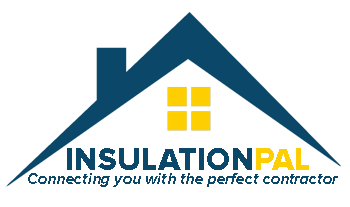Material Insulation Cost: Definition and What it is
Cost of insulation materials themselves, varying by type, R-value, and quantity.
What is Material Insulation Cost?
Material costs represent the price of insulation products themselves, typically accounting for 40-60% of total insulation project costs. Material pricing varies widely by insulation type, R-value, brand, and local availability.
Insulation material costs range from budget-friendly fiberglass batts at $0.40-$0.70 per square foot to premium closed-cell spray foam at $1.50-$2.50 per square foot. Higher R-values cost more per square foot but provide better long-term energy savings. Bulk purchases reduce per-unit costs. Material costs fluctuate with petroleum prices (affecting foam products), recycled content availability (cellulose, cotton), and seasonal demand.
Material Cost Ranges by Type
- Fiberglass Batts: $0.40-$0.80 per sq ft (most economical)
- Blown-in Cellulose: $0.60-$1.20 per sq ft (good value)
- Mineral Wool: $1.00-$1.80 per sq ft (premium performance)
- Rigid Foam Board: $0.80-$2.00 per sq ft depending on type and thickness
- Spray Foam: $1.50-$2.50 per sq ft for material alone (high-end pricing)
- Natural Materials (cotton, wool, cork): $1.50-$3.00 per sq ft (specialty pricing)
Maximizing Material Value
Focus on R-value per dollar, not just upfront cost. Higher initial material costs often pay back through energy savings. Buy during off-peak seasons (spring/fall) for better pricing. Consider slightly overordering to avoid return trips and restocking fees. For DIY projects, rent blowing equipment from suppliers who sell the material. Compare local suppliers against big-box stores. Factor in delivery costs for bulk orders. Don't sacrifice quality for marginal savings—poor installation of cheap materials wastes money.
Benefits of Material Insulation Cost
- Material quality directly impacts long-term performance
- Higher R-value materials provide better energy savings
- Durable materials reduce replacement costs
- Eco-friendly materials support sustainability goals
- Premium materials often have better warranties
- Fire-resistant materials add safety value
- Right material selection optimizes cost-effectiveness
Material Insulation Cost Cost
Material costs fluctuate based on market conditions, availability, and bulk discounts.
- Insulation type and R-value requirements
- Quantity ordered (bulk discounts typically 10-20%)
- Regional availability and shipping costs
- Seasonal demand (summer/winter peaks increase prices)
- Petroleum prices (affecting foam insulation costs)
- Brand premiums vs. generic options
- Specialty products (eco-friendly, high-performance) command 30-100% premiums
How InsulationPal Can Help You
InsulationPal connects you with licensed, experienced insulation contractors. Compare multiple quotes to get the best value for your project.
Free Quotes: Get multiple competitive quotes from pre-screened contractors.
Expert Matching: We match you with pros experienced in material insulation cost.
Quality Assurance: Licensed, insured, and verified contractors.
Related Services and Resources
Explore all services we offer
Expert guides and tips on insulation
